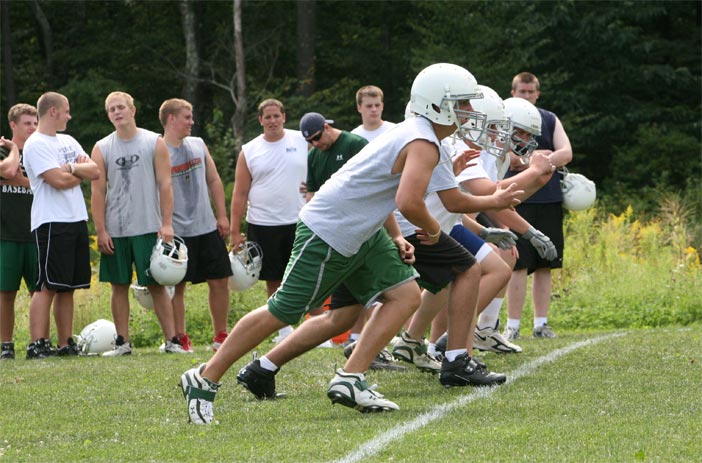
Article by Ken Belson of the NY Time republished at www.footballstrength.com
A new study of N.F.L. retirees found that those who began playing tackle football when they were younger than 12 years old had a higher risk of developing memory and thinking problems later in life.
The study, published in the medical journal Neurology by researchers at the Boston University School of Medicine, was based on tests given to 42 former N.F.L. players, ages 41 to 65, who had experienced cognitive problems for at least six months. Half the players started playing tackle football before age 12, and the other half began at 12 or older.
Those former N.F.L. players who started playing before 12 years old performed “significantly worse” on every test measure after accounting for the total number of years played and the age of the players when they took the tests. Those players recalled fewer words from a list they had learned 15 minutes earlier, and their mental flexibility was diminished compared with players who began playing tackle football at 12 or older.
While both groups scored below average on many tests, there was a roughly 20 percent difference between the two groups on several measures.

Robert Stern, the senior author of the study, said about playing tackle football, "The earlier you start, the more issues you may have.” Credit Matt Rourke/Associated Press
The age of 12 was chosen as a benchmark because it is roughly the point by which brains in young boys are thought to have already undergone key periods of development. Research has shown that boys younger than 12 who injure their brains can take longer to recover and have poor cognition in childhood.
The findings are likely to fuel an already fierce debate about when it is safe to allow children to begin playing tackle football and other contact sports. Youth leagues are under scrutiny for putting children at risk with head injuries.
Pop Warner and many other youth leagues have added training protocols, have limited contact in practice and have adjusted weight and age limits to try to reduce head injuries and the risks associated with them. But some leagues continue to allow children as young as 5 to play tackle football.
“Being hit in the head repeatedly through tackle football during a critical time in brain development may be associated with later-life cognitive difficulties,” said Dr. Robert Stern, the senior author of the study, who teaches at the Boston University School of Medicine. “The take-home message is, the earlier you start, the more issues you may have.”
The findings came out of a larger multiyear study financed by the National Institutes of Health with the goal of finding a way to diagnose chronic traumatic encephalopathy in living people. Dr. Stern warned that the results were applicable only to N.F.L. players and that more studies would be needed to determine the impact on a wider population, like players who stopped playing in college or high school. The findings should also not be used to dictate rule changes, he said.
But “it makes logical sense that kids during a time of rapid brain development should not be exposed to hit after hit after hit to their head,” Dr. Stern said. “To me, it is logical. The brain is our most important organ. The idea of dropping kids off at a field during a very important period of maturation and fostering hit after hit after hit, it doesn’t make sense to me personally.”
Read the original article here.
Source: www.nytimes.com








